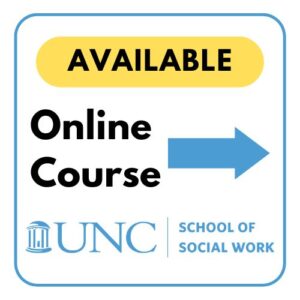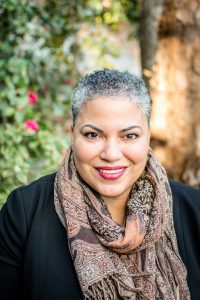
Description:
Framed in NASW’s Code of Ethics, this workshop will challenge participants to reflect on how to implement clinical practice with a social justice identity or with social justice in mind. As clinicians, we are trained to “start where the client is,” practice a nonjudgmental stance and positive regard, teach and enhance skills use, and help people modify ineffective patterns in thinking and behaviors. Inherent in each of these practices are implicit assumptions about power and knowledge. In this workshop, Carmen Crosby will help participants to explore personal beliefs and assumptions about themselves and their relationships with clients through an intersectional framework. Participants will engage in a variety of exercises to facilitate ongoing dialog and exploration of the effects of power, oppression, transference, and countertransference in and outside of the therapy room.
Trainer:
 Carmen Crosby, Ph.D., LCW, LMSW is an accomplished interventionist specializing in clinical practice, social equity and cultural diversity, health equity, victimization, and recovery. Dually licensed in direct and macro practice, Dr. Crosby’s experience incorporates her clinical and macro lenses. She consults with agencies to help them explore their culture and practices and increase their sensitivity. Her experience spans work with individuals recovering from complex trauma to organizations wanting policy and value congruence. This includes work with the military around their treatment of sexuality, gender, and trauma, as well as providing supervision for therapists and supervisors. Dr. Crosby has extensive experience in direct practice, research, and consulting in the areas of sexual and interpersonal violence and multi-tiered interventions with (in) marginalized populations. She uses energy, plain talk, and humor to engage participants in difficult topics.
Carmen Crosby, Ph.D., LCW, LMSW is an accomplished interventionist specializing in clinical practice, social equity and cultural diversity, health equity, victimization, and recovery. Dually licensed in direct and macro practice, Dr. Crosby’s experience incorporates her clinical and macro lenses. She consults with agencies to help them explore their culture and practices and increase their sensitivity. Her experience spans work with individuals recovering from complex trauma to organizations wanting policy and value congruence. This includes work with the military around their treatment of sexuality, gender, and trauma, as well as providing supervision for therapists and supervisors. Dr. Crosby has extensive experience in direct practice, research, and consulting in the areas of sexual and interpersonal violence and multi-tiered interventions with (in) marginalized populations. She uses energy, plain talk, and humor to engage participants in difficult topics.
References:
- Asakura, K., & Maurer, K. (2018). Attending to social justice in clinical social work: Supervision as a pedagogical space. Clinical Social Work Journal, 46(4), 289-297. doi:10.1007/s10615-018-0667-4
- Bartoli, E., Bentley-Edwards, K. L., García, A. M., Michael, A., & Ervin, A. (2015). What do white counselors and psychotherapists need to know about race? white racial socialization in counseling and psychotherapy training programs. Women and Therapy, 38(3-4), 246-262. doi:10.1080/02703149.2015.1059206
- Chan, C. D., Cor, D. N., & Band, M. P. (2018). Privilege and oppression in counselor education: An intersectionality framework. Journal of Multicultural Counseling and Development, 46(1), 58-73. doi:10.1002/jmcd.12092
- Comas-Diaz, L. (2012). Psychotherapy as a healing practice, scientific endeavor, and social justice action. Psychotherapy, 49(4), 473-474. doi:10.1037/a0027820
- D’Arrigo‐Patrick, J., Hoff, C., Knudson‐Martin, C., & Tuttle, A. (2017;2016;). Navigating critical theory and postmodernism: Social justice and therapist power in family therapy. Family Process, 56(3), 574-588. doi:10.1111/famp.12236
- Enns, C. Z., & Fischer, A. R. (2012). On the complexity of multiple feminist identities. The Counseling Psychologist, 40(8), 1149-1163. doi:10.1177/0011000012439477
- Esmiol, E. E., Knudson-Martin, C., & S. Delgado. (2012). Developing a Contextual Consciousness: Learning to Address Gender, Societal Power, and Culture in Clinical Practice. Journal of marriage and family therapy, 38I (4): 573-588.
- Goodman, L. A., Liang, B., Helms, J. E., Latta, R. E., Sparks, E., & Weintraub, S. R. (2004). Training counseling psychologists as social justice agents: Feminist and multicultural principles in action. The Counseling Psychologist, 32(6), 793-836. doi:10.1177/0011000004268802